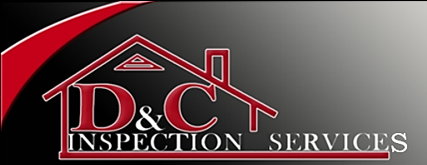How to Prepare For a Home Inspection?
So, you’ve listed your house, found a buyer, and now it’s time for the home inspection. Don’t worry! This vital step in the selling procedure doesn’t have to be nerve-wracking. With a small preparation, you can easily handle the process of the inspection and keep the deal on track. Home Inspection is a comprehensive examination of your property, covering everything from the top to the base. The inspector will examine key areas like the roof, walls, plumbing, electrical system, and HVAC.
They’ll also check for operative issues and indications of damage, like leaks or mold. Before diving into preparations, let’s understand what the home inspection in detail.
Important Things to Do Before An Inspector Arrives at Your Home
Open Access for the Inspector
You should make the inspector’s job stress-free by providing easy access to all areas of your home. Clear all the clutter from basements, attics, and utility rooms to allow the inspector to systematically inspect these spaces. Don’t overlook the outdoor areas. Make sure that pathways are neat and plants are trimmed back to give the inspector obstruct-free access to the exterior of your home.
Roof Care Matters
When was the last time you checked your roof? Give some time to look for any damage or wreckage buildup. Clean drainages, replace missing shingles and make sure downspouts are directing water away from the house. Fixing roof issues beforehand can prevent possible red flags during the inspection. When it comes to a new construction home inspection, ensuring the roof’s condition is awesome. With Roof Condition Inspection Services, you can trust that every aspect of your new home, including the roof, receives particular attention.
Maintain a Clean and Clear Interior
Keep the good vibes going from staging your home by always keeping the interior clean and organized. A well-kept home not only looks better but also provides the impression of perfect maintenance. Take good care of little repairs, keep surfaces mess-free, and make sure that all appliances are in appropriate working condition.
Look Into Electrical Issues
Replace any burnt-out light bulbs throughout your home. A well-lightened property not only creates a good impression but also inhibits the inspector from weakening possible electrical issues because of dark or dim-lighted areas.
Investigate Plumbing of Your Home
You should make sure that all plumbing fixtures are in an appropriate working state. Address any leaks, drips, or running toilets earlier in the inspection. Simple fixes like changing washers or tightening connections can save you from possible headaches down the line.
Give Attention to the HVAC System
Give your heating and cooling system some TLC before the inspection. Exchange air filters, examine for proper action, and ensure that pilot lights are in working condition. A well-maintained HVAC system gives indications to the inspector that you’ve taken great care of your home’s vital systems.
Label Your Fuse Box
A clearly labeled fuse box removes confusion for both property holders and inspectors. Take the time to make sure that all switches are labeled correctly and it makes it easy to detect and troubleshoot electrical problems if necessary.
Check Door and Cabinet
Take a walk through your home to review doors and cabinets. Confirm they work properly, knobs are protected, and joints are tightened. Address any issues to prevent possible worries during the inspection. Internal and outer doors should be latching into the frame with no problem and any locks, particularly on doors that lead outside, need to be working appropriately as well. Sometimes cold or heat has an effect on the normal function of doors and leads to problems, so be sure to check all doors, including those you don’t use very often.
Address Water Damage
Inspect your home for marks of water damage both inside and outside. Check for leakage beneath sinks, around appliances, and along walls and ceilings. Addressing water-related issues determines active maintenance and avoids shocks during the inspection.
Bug Control
Keep an eye out for the presence of insects and address them on time. While a stray spider may not raise eyebrows, a noteworthy plague could discourage potential buyers. Take steps to remove pests and keep your home bug-free.
Important Things to Do On the Inspection Day
Be Prepared on Inspection Day
On the day of the inspection, make sure all utilities are on and gates and entry points are opened. Plan to clear out the property during the inspection, and take pets with you if possible. Being organized and accommodating can support the inspection process effectively.
Gather Your Documents
Now, paperwork is about as thrilling as watching paint dry, but remember documents are very important! Gather up all your maintenance records, receipts for repairs, and any warranties or manuals you have lying around. Not only will this impress the inspector with your organizational skills, but it’ll also give them a better idea of how well you’ve taken care of your home.
Be a Friendly Host
When the big day finally arrives and the inspector arrives at your doorstep, be sure to meet them with a smile and a warm welcome. Offer them a cup of coffee or a glass of water and then step back and let them do their thing. Remember, they’re just doing their job, so there’s no need to supervise them for the whole time.
Ask Questions (But Not Too Many)
While the inspector is busy examining your home, you may feel free to ask questions about what they’re doing and what they’re looking for. Just don’t go overboard with the examination – nobody likes a nosy Nancy.
Conclusion
Keep in mind that the goal of the home inspection is not to expose every minor defect but to ensure that the home is in reasonable condition for the customer. By addressing possible issues before examination and maintaining your home’s overall condition, you can direct the procedure of inspection with self-confidence.
